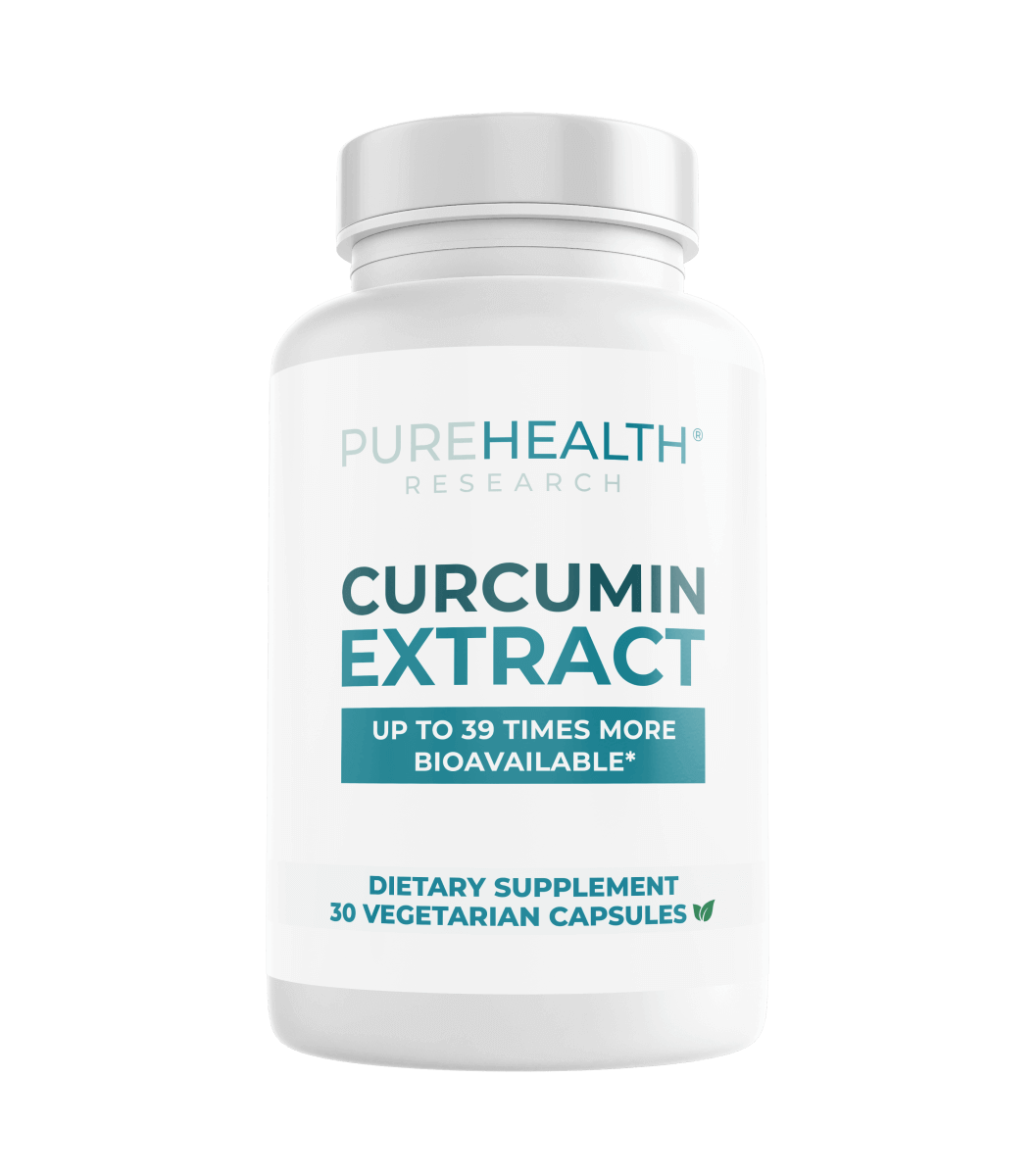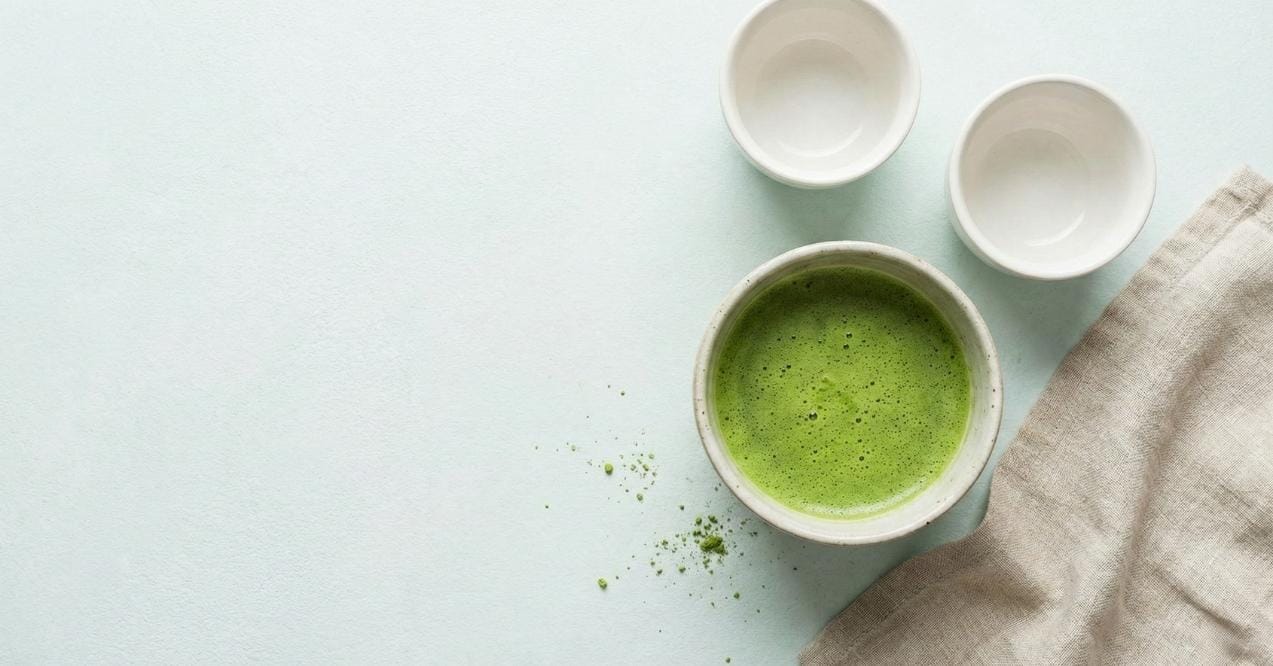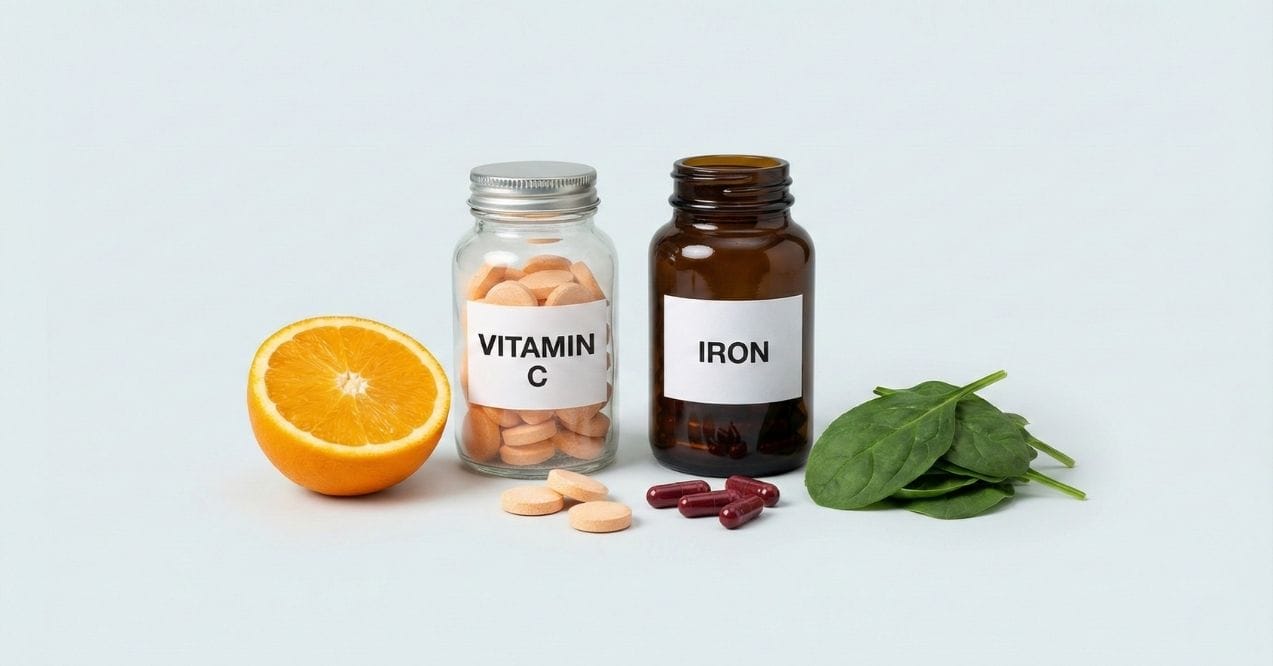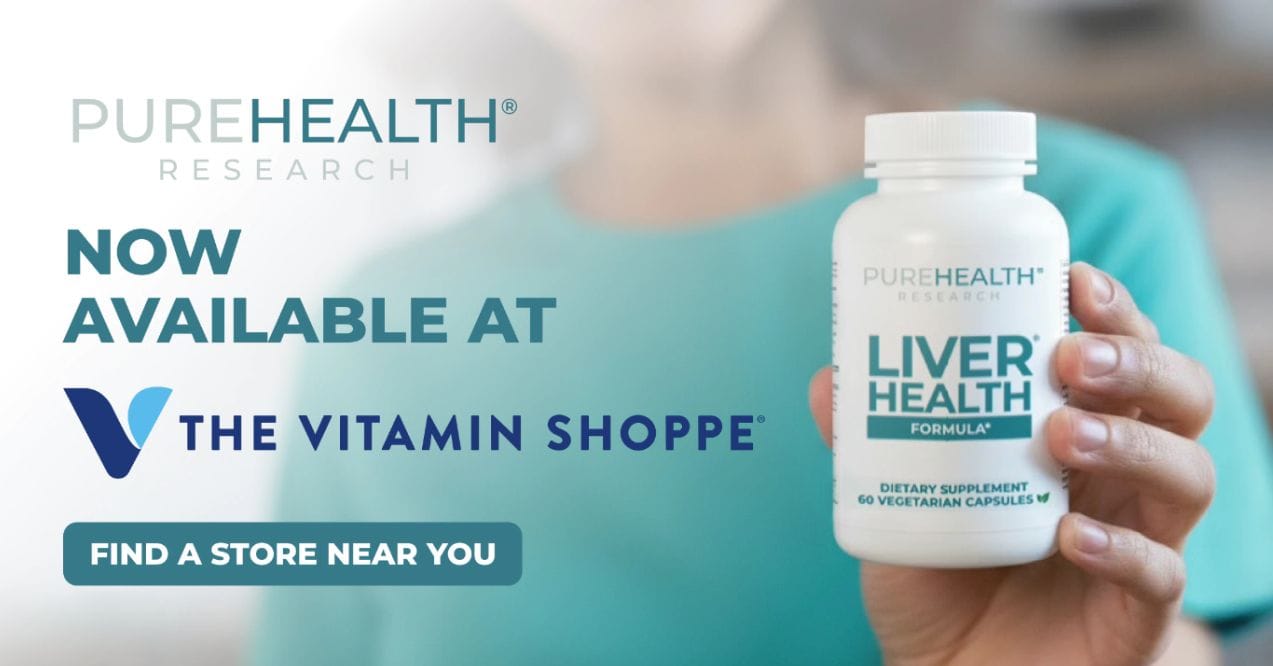What Is White Turmeric? (Curcuma Zedoaria)
What is white turmeric? Discover the potential of this crucial turmeric bioactive compound and learn more about its benefits and uses in improving health.
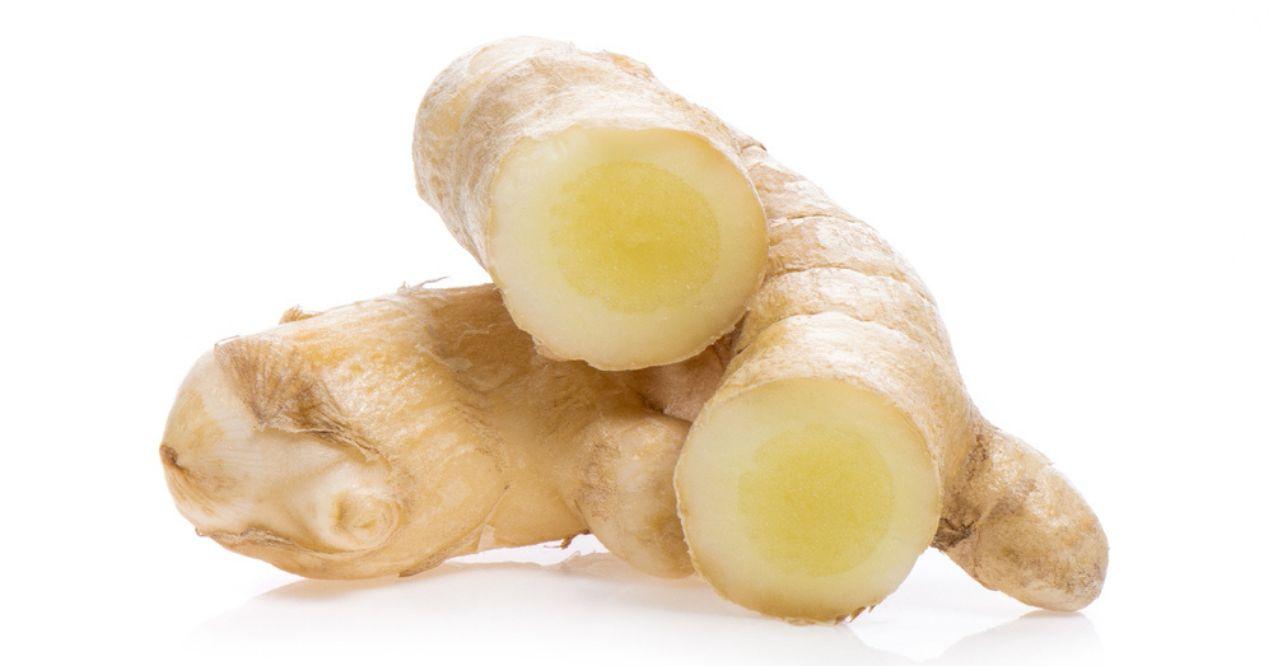

Navigating the vast universe of natural health remedies, have you found yourself pondering a question: what is white turmeric? Rest assured, you’re not alone. As the global wellness conversation continues to evolve, spotlighting tried and true ingredients with newfound potential, white turmeric is emerging as a standout star. In an age where curiosity meets scientific rigor, white turmeric is now more than just a whisper; it’s a resonant call beckoning to those eager to understand nature’s offerings.
With you, the discerning reader in mind, this article sets forth on a purposeful exploration to demystify the layers that define white turmeric. From its deep-rooted origins to its unique attributes, we will illuminate the promising health benefits of this botanical marvel. Join us at the crossroads of ancient wisdom and cutting-edge science, where white turmeric shines brilliantly, revealing its transformative potential.
What Is White Turmeric and How Does It Differ from Yellow turmeric?
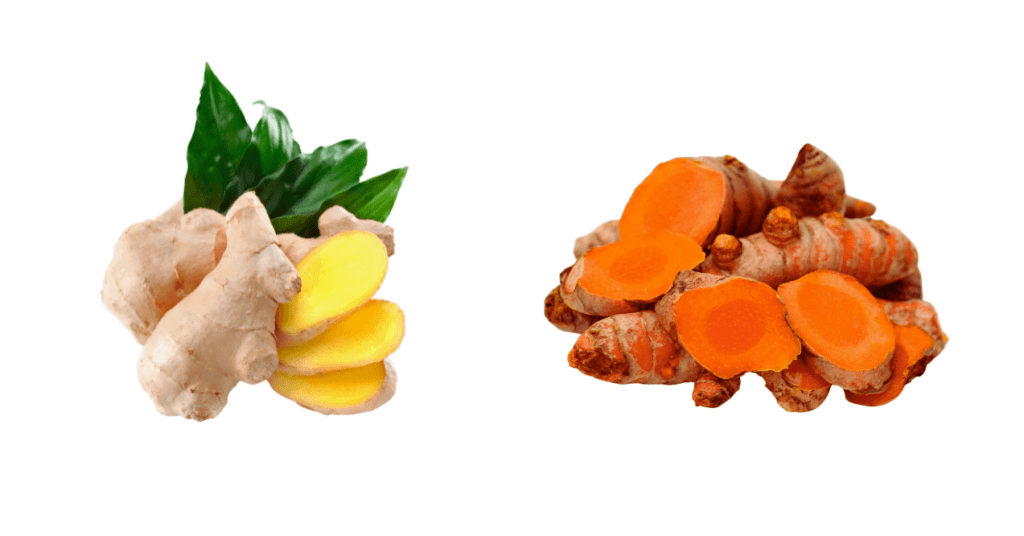
Most people recognize turmeric by its bright yellow hue. However, there’s another variety known as white turmeric (Curcuma Zedoaria) that’s gaining popularity for its health benefits. While both yellow and white turmeric belong to the Curcuma genus, they are distinct species with varying compounds.
These differences could lead to distinct health effects. Yellow turmeric is renowned for its anti-inflammatory and antioxidant properties, while ongoing research seeks to uncover the full spectrum of health benefits white turmeric may provide.
What Is White Turmeric Good For?
Navigating the world of natural health supplements can be overwhelming, but white turmeric stands out as a promising option. More than just a spice, it offers potential solutions to several health concerns.
While yellow turmeric is commonly known, its counterpart, white turmeric (Curcuma Zedoaria), should not be confused with tetrahydrocurcumin (a metabolite of curcumin found in yellow turmeric). White turmeric is acknowledged for its antioxidant, anti-inflammatory, and skin-rejuvenating properties, making it an attractive choice for those exploring natural wellness avenues.
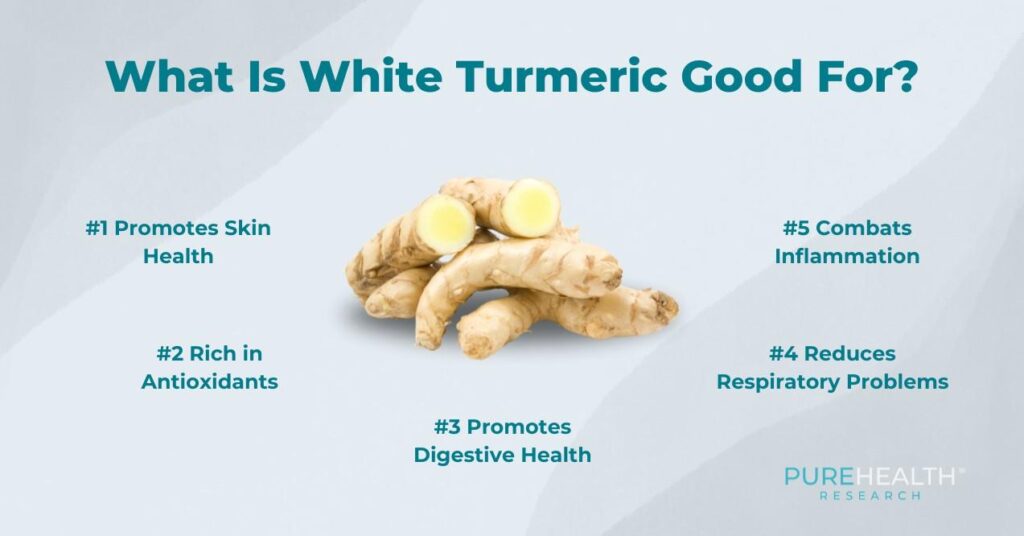
1. Promotes Skin Health
Our skin, an expressive canvas of our well-being, often bears the brunt of modern life—environmental pollutants, relentless UV rays, and the relentless pace of daily life. But what if there was a natural remedy to these unyielding challenges? Say hello to white turmeric.
Diving deep into cellular dynamics, a study illuminated white turmeric’s prowess as not just a bystander but a staunch defender of skin health. The discovery is compelling: white turmeric (especially its extract) may combat the activity for UVB-induced skin inflammation and photoaging, the very culprits behind premature aging and lackluster skin.
Envision a natural shield for your skin, fortified by the power of white turmeric. As our skin’s natural defenses are tested daily, integrating the protective potential of white turmeric offers a hopeful and invigorating approach to skin care.
2. Rich in Antioxidants
Scientific research has shown interest in white turmeric due to its abundant antioxidant properties. One particular study emphasized its capacity to neutralize free radicals, demonstrating its strong antioxidant effects. These findings suggest that white turmeric has the potential to counteract the harmful free radicals responsible for cellular damage and aging. Thus, white turmeric might offer protection against the detrimental effects of oxidative stress on cells and tissues.
3. Promotes Digestive Health
Another study investigated white turmeric’s gastroprotective effects to explore its potential benefits on digestive health. The study on rats suggested that white turmeric could protect the gastric mucosa and potentially benefit gastrointestinal well-being. This finding indicates that white turmeric might play a role in supporting digestive comfort and overall gastrointestinal health. However, further research is necessary to fully elucidate its mechanisms and effects on human digestive systems.
4. Reduces Respiratory Problems
Research into the anti-inflammatory properties of white turmeric extends to its potential in addressing respiratory issues. Studies have explored its effects on bronchial inflammation in mice, with results indicating that white turmeric might alleviate inflammation and airway hyperresponsiveness associated with the bronchi.. These findings suggest that its anti-inflammatory properties could extend to respiratory health, but clinical studies are necessary to determine its effectiveness in human respiratory conditions.
5. Combats Inflammation
White turmeric’s ability to combat inflammation has been a subject of investigation. A review article discussed the anti-inflammatory properties of turmeric derivatives, including its white variant. The review highlighted their potential to modulate inflammatory pathways, which could have therapeutic implications for managing inflammation-related conditions. While research indicates white turmeric’s anti-inflammatory potential, more studies are needed to ascertain its efficacy and optimal usage in various inflammatory contexts.
How to Use White Turmeric?
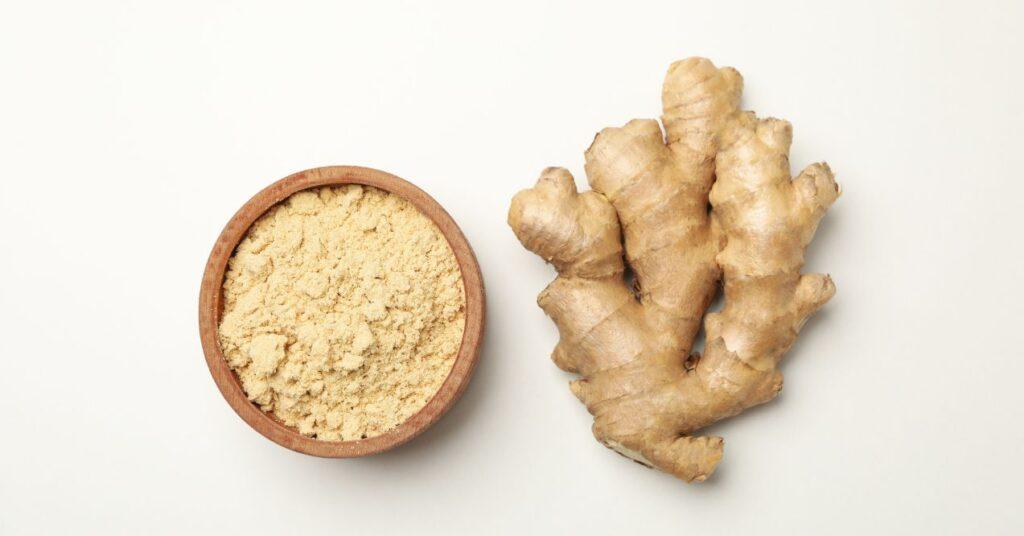
Exploring its potential applications and understanding the recommended consumption methods is essential when considering white turmeric. Scientific studies have provided insights into the various ways white turmeric can yield potential benefits when used correctly while also considering its bioavailability and safety.
Topical Formulations:
One common application of white turmeric is in topical formulations promoting skin health. Research highlights its potential skin-protective effects by reducing oxidative stress and inflammation in human skin cells. This finding has led to the inclusion of white turmeric in skincare products to enhance complexion and overall skin vitality. When using white turmeric topically, it’s advisable to follow product instructions and consult a dermatologist if you have specific skin concerns.
Oral Consumption:
Oral consumption is another route to consider when using white turmeric. Incorporating white turmeric into your diet may offer antioxidant and anti-inflammatory support. White turmeric showcases robust antioxidant properties and the ability to scavenge free radicals.
For individuals interested in its potential effects on digestive health, research has explored its gastroprotective properties. While this study took place on rats, it suggests that white turmeric might support gastrointestinal well-being. If you’re considering oral supplementation, talk with your physician to determine the appropriate dosage and ensure it aligns with your health goals.
White turmeric’s anti-inflammatory properties have garnered attention in addressing respiratory issues and inflammation. Studies have examined its impact on bronchial inflammation in mice, indicating its potential benefits. However, it’s important to note that clinical studies in humans are necessary to validate these effects. If you’re considering white turmeric for respiratory health, discussing it with a healthcare provider first is the way to go.
Cautions and Side Effects of White Turmeric

Exploring the potential benefits of white turmeric also entails acknowledging its potential cautions and side effects. While white turmeric holds promise for various health applications, scientific studies have highlighted specific considerations that individuals should be aware of to ensure their safety and well-being.
Interaction With Medications
White turmeric’s multifaceted influence on various biological pathways may interact with certain medications. Notably, turmeric has the potential to impact drug metabolism enzymes, which can alter the effectiveness of certain drugs, including some anticancer medicines. If you are taking prescription medications, talking with your healthcare provider before introducing white turmeric is vital. This proactive step can help prevent unfavorable interactions and ensure your treatment plan remains effective.
Allergic Reactions and Skin Sensitivity
Although uncommon, allergic reactions to turmeric supplements can occur. Notably, a case report documented an instance of contact dermatitis resulting from turmeric use. This case serves as a reminder that even natural compounds can trigger allergic responses in susceptible individuals.
Therefore, before applying white turmeric topically or incorporating it into your diet, conducting a patch test on a small skin area is advisable. Individuals with a history of allergies or skin sensitivities should seek professional guidance to ensure safe usage.
Pregnancy and Breastfeeding Precautions
Pregnancy and breastfeeding are sensitive periods that require careful consideration when contemplating the use of supplements, including white turmeric. Scientific research on the effects of turmeric during pregnancy and lactation is lacking.
Due to its potential to influence hormonal pathways and the lack of comprehensive safety data, pregnant and breastfeeding individuals should exercise caution. Consulting a healthcare professional before using white turmeric is highly important to ensure the safety of both the parent and the developing child.
Curcumin Extract by PureHealth Research
Explore the potential of Curcumin Extract by PureHealth Research. This thoughtfully formulated supplement has the endorsement of Dr. Holly Lucille, ND, a leading voice in naturopathic medicine. Curcumin Extract stands out, leveraging the inherent power of curcuminoids, a vital compound present in turmeric.
Curcumin, found naturally within turmeric, is lauded for its antioxidant and anti-inflammatory properties. These properties can be crucial in understanding a spectrum of potential health benefits. Research indicates that curcumin’s antioxidant capabilities can lead to improved gut health integrity, digestion, support systolic numbers, and robust cardiovascular health.
Its anti-inflammatory attributes may be beneficial in reducing discomfort for overworked joints and muscles, providing enhanced support for long-term brain function, and ensuring fewer instances of mood fluctuations, including less moodiness and emotional distress.
Furthermore, the curcumin in this extract might offer a shield against the detrimental effects of oxidative stress. By potentially neutralizing free radicals, it may also contribute to a decline in chronic stress levels, nurturing mental well-being.
Curcumin Extract promises more than just components; it brings forth a vision of holistic health transformation. Bridging the marvels of science and nature, this supplement welcomes individuals to a renewed and diverse perspective on well-being, one capsule at a time.
Final Thoughts
So, what is white turmeric? The journey through the realm of this fantastic bioactive compound unveils a natural remedy brimming with potential. Informed by scientific studies, its properties and precautions empower individuals to make thoughtful decisions regarding its integration into their wellness voyage.
Navigating this path, guided by expert insights, enables embracing white turmeric’s benefits while prioritizing health and well-being. As science continues to illuminate the pathways of vital remedies, white turmeric stands as a testament to nature’s enduring capacity to enrich lives.
Amidst the clamor of modern innovations, white turmeric reminds us that timeless solutions often emerge from embracing tradition. The journey from research to application underlines the symbiotic relationship between science and nature, offering a harmonious way to navigate the complexities of health.
By recognizing the profound potential of white turmeric, we can tap into the wellspring of nature’s wisdom, fostering a holistic approach that promotes well-being in a multitude of ways.
White turmeric is known for promoting skin health, providing rich antioxidants, supporting digestive health, reducing respiratory problems, and combating inflammation. These benefits make it a promising natural wellness supplement.
White turmeric is rich in antioxidants, which help neutralize harmful free radicals responsible for cellular damage and aging, thus protecting against oxidative stress.
Yes, studies suggest that white turmeric may protect the gastric mucosa and support gastrointestinal well-being, though more research is needed to confirm its effects on human digestive systems.
Sign up for our Healthy Living newsletter!
Advertisement. This site offers health, wellness, fitness and nutritional information and is designed for educational purposes only. You should not rely on this information as a substitute for, nor does it replace, professional medical advice, diagnosis, or treatment. If you have any concerns or questions about your health, you should always consult with a physician or other health-care professional. Do not disregard, avoid or delay obtaining medical or health related advice from your health-care professional because of something you may have read on this site. The use of any information provided on this site is solely at your own risk.
